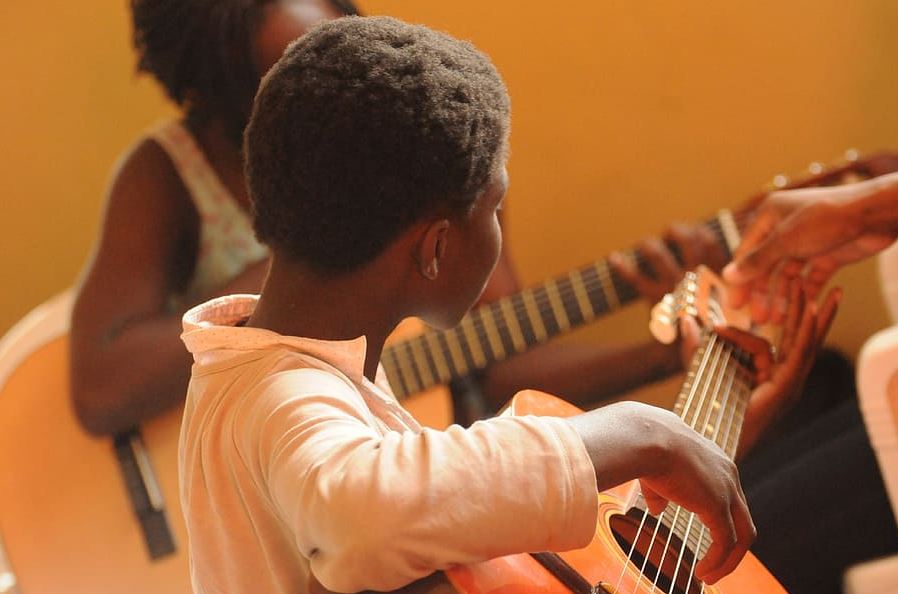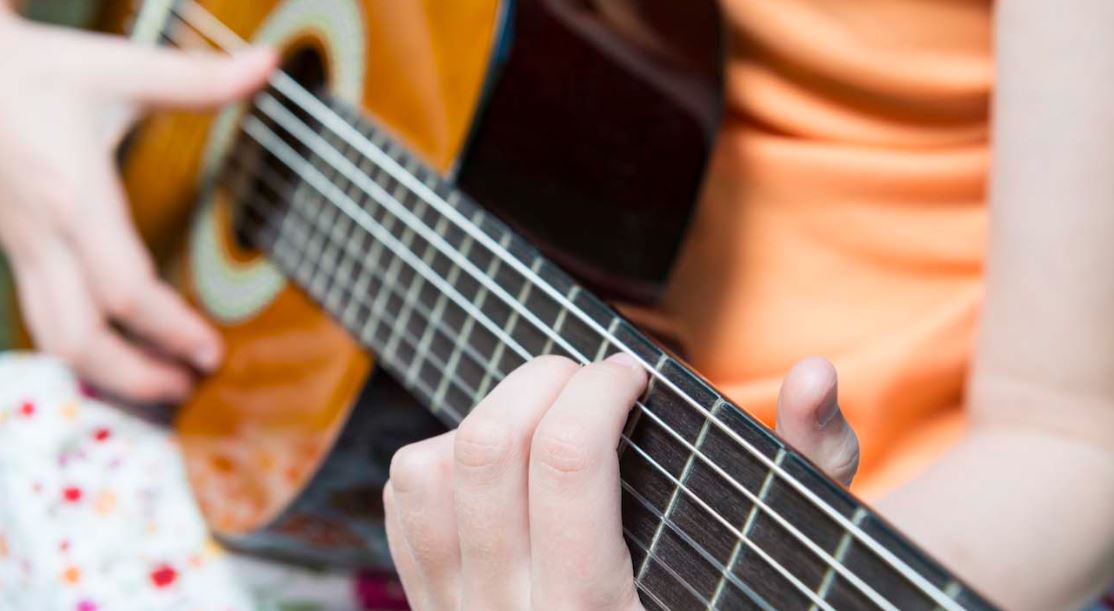As a rule, the minimum age to approach the guitar is around 7-8 years. Before this time, children do not yet have the physical maturity required to play the guitar: their hands are small, with fingers too full to be placed precisely on the strings.
You should choose the right type of instrument for a child learning guitar. Online reviews can help you identify the best brands and types. Learning or playing the guitar can benefit children in so many ways. Let’s look at some of the benefits.
Learning to Play the Guitar Promotes Concentration
This is the first quality that children will develop by learning to play the guitar. Learning this tool requires us to activate all our mental and intellectual abilities in a more or less constant effort to perform a precise action.
Such concentration could be aimed at coordinating a series of chords, learning a particular technique such as sweep-picking, improving agility in the right hand (for right-handed people), etc. By learning to concentrate, children test their will and determination: they learn to focus their thoughts, avoiding scattering them.
Therefore, thanks to guitar lessons, the very young will develop a capacity for concentration that they can apply in all other fields of life: to solve a math problem at school, to remedy a bad grade, to prepare for an exam.
Guitar Lessons Help Memorize
Children’s brains are by definition very young at this age: a kind of sponge that absorbs a huge amount of information. Little musicians’ tastes begin to form little by little.
Learning the guitar is not hard in itself: once you have acquired the first chords (major, minor, and some recurring seventh chords), as soon as you learn to put your fingers on the strings and use your right hand alone or with a pick, everyone can already playing lots of songs, of any kind. Children have this ability to absorb information. For this, the guitar will teach them to structure their memory and refine it.
Guitar Lessons Increase Discipline
Guitar lessons increase the level of discipline of children: to play this instrument well, it is necessary to spend many hours tirelessly repeating its scales, making mistakes, and then correcting them. In short, learning to play the guitar well doesn’t happen with a snap of your fingers.
As in sport and the professions, also in music, you have to repeat the same actions to metabolize them in the best possible way: making and repeating the same chords over and over to get to interpret them correctly.
Attending music courses consistently allows children to learn the discipline. By persevering in this exercise, the child will be able to apply this same strength of character both in school and in life.

